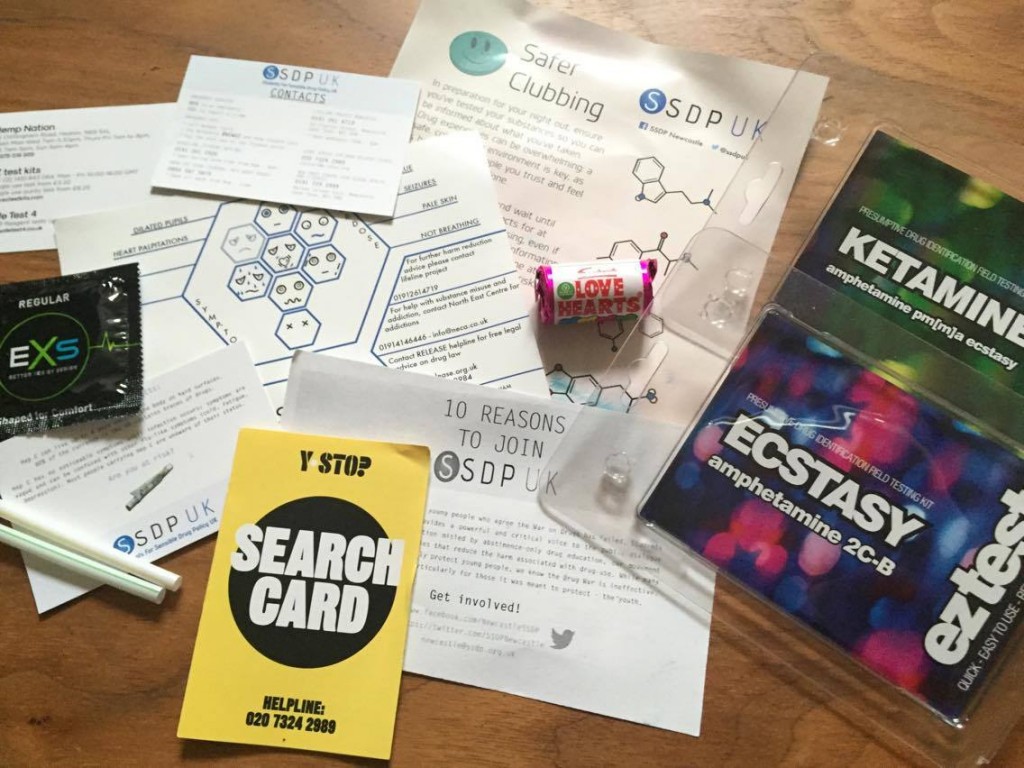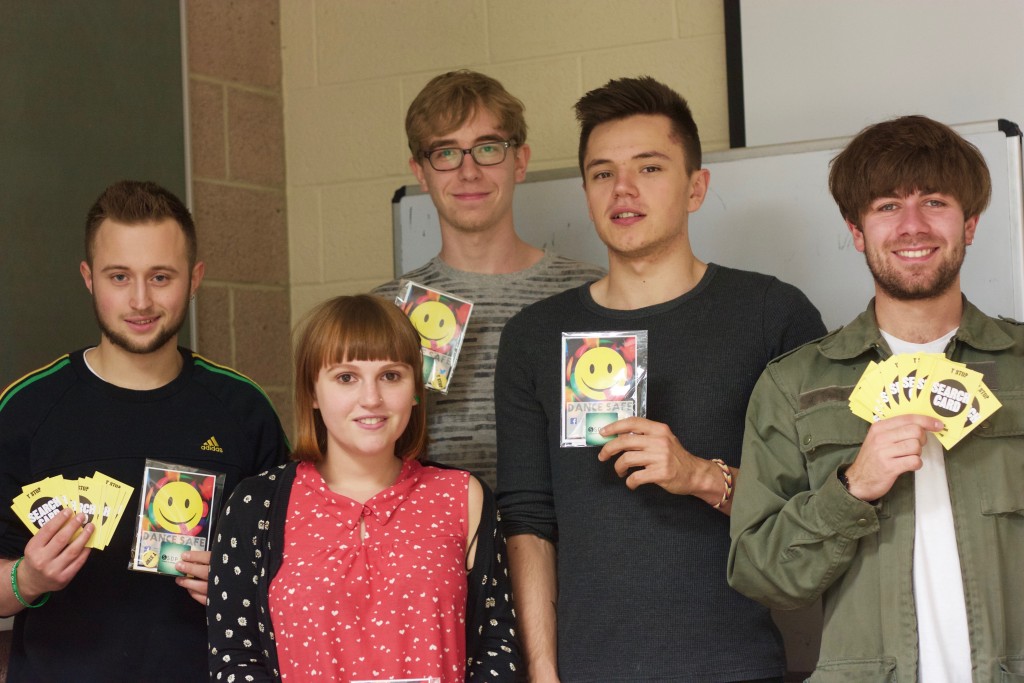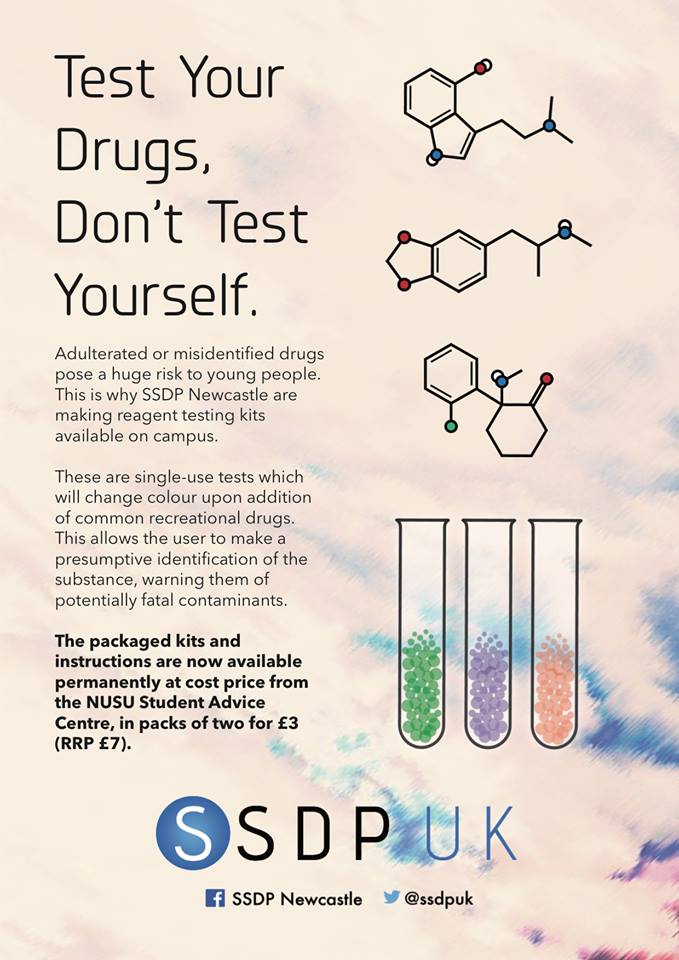Students for Sensible Drug Policy recently launched a drug testing initiative in Newcastle university, with plenty of media coverage this week, here’s the roundup of what you need to know.
Just Say No is a cop-out.
It’s obvious that the safest way to use drugs, is not to use them at all, and, whilst no substance is inherently safe, drug use surveys at universities around the country have consistently shown that over 50% of students claim to have tried drugs. After more than 40 years of the failed war on drugs, drug deaths are at their highest since records began in England and Wales. The reality is that expecting young people to ‘Just Say No’ is inadequate, and to claim that it works avoids the real issues at hand.
Turning a blind eye and failing to establish the necessary public health measures to save young lives is failing our generation. Harm reduction saves lives, much like sex education at school, we know it doesn’t discourage sex but it equips young people with the skills and knowledge they need to protect themselves. It’s clear that we need to do more and it makes sense that those who ultimately choose to use drugs need to be provided with accurate, unbiased information to help minimise the risks associated with their drug use.
Some drugs are illegal, but people are still dying.
All drugs, both illegal and legal, can be dangerous; according to the health and social care information centre the estimated cost to the NHS of alcohol misuse is £3.5 billion every year, which is equal to £120 for every taxpayer.
The safest way to use alcohol is to avoid it completely, but we still offer harm reduction information to those that do, such as: drinking in moderation; not combining it with other drugs (incl. legal, illegal or prescription medications); and to limit the prolonged use of alcohol to avoid the negative effects such as dependency, liver damage, brain damage, etc.
We need to have a better approach to raising awareness and reducing harms of all drug use (including alcohol), regardless of legality; if the legal status of a drug was an effective deterrent, we would not see drug deaths. Put simply drug use is an issue of public health not criminal justice.
Drug testing isn’t 100% reliable, but it’s something.
It’s no secret that the kits are not 100% reliable and according to EZ Test Kit, they can only check for the presence of one specific substance or a group of substances and will not indicate the presence of other substance(s) or adulterant(s), that could be contained in the same sample. The detection of an adulterant allows the user to discard the substance which allows them to reduce risk and avoid harm. We make it clear that the lack of detection of an adulterant does not imply that the substance is ‘safe’.
Working within the limits of the law means more advanced services, like lab testing, cannot be easily provided in a useful way. As such we include information about where users can go to purchase more advanced sets of multiple-use testing kits (should they wish to continue drug testing in future).
Once drug testing kits have been used, we advise sticking by common dosage guidelines (less is more) and avoiding anything above a ‘moderate’ dosage level, drug combinations, and using that drug (or any drug) regularly or frequently. We direct users to community-built online harm reduction resources like Erowid, Bluelight and RollSafe – which provide information about how the risks of various different drugs can be minimised.
Given that the desire to test drugs is typically secondary to wanting to take them, we do not believe this campaign encourages students to use drugs. Instead, the campaign will increase awareness of harm reduction practices and encourage drug users to have a more sensible attitude toward drugs.
We recognise the limitations of presumptive testing kits, however they offer a quick and cheap way for young people to test their drugs, should they intend to use them. Whilst these kits are not 100% reliable, we believe that these kits, paired with appropriate harm reduction information, can save lives – until a suitable policy response is in place to protect young people.
Ollie McNally is a Computer Science Student at The University of Newcastle, he is also the Vice — President of the Newcastle Chapter of SSDP



